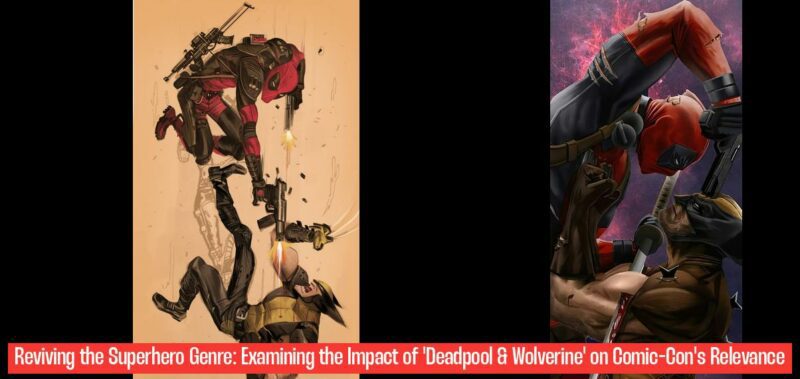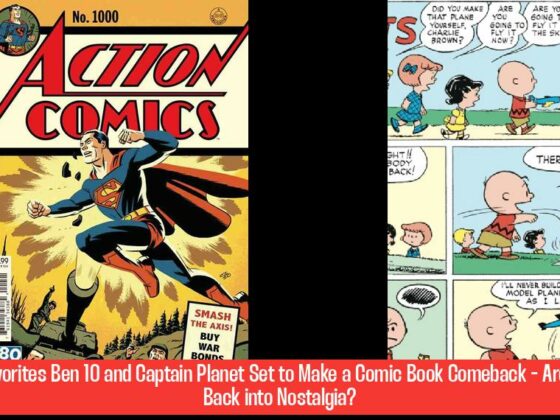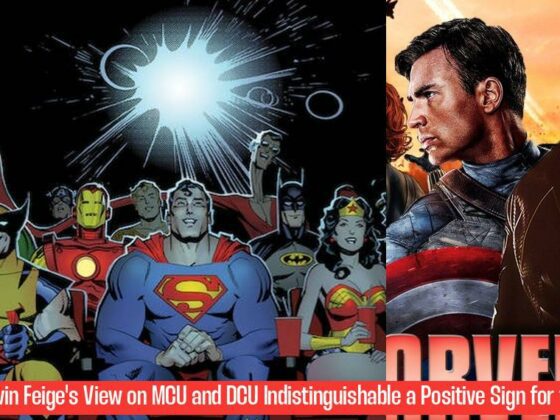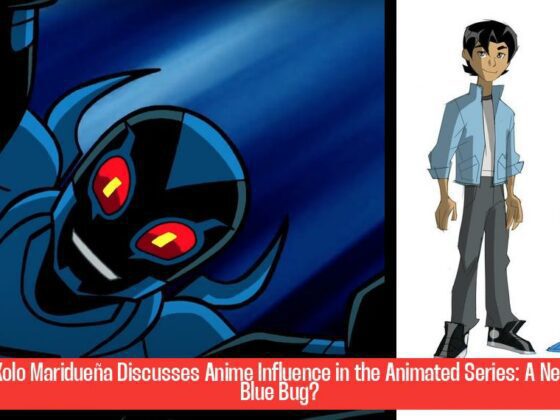As ‘Deadpool & Wolverine’ Stomps On Superhero Fatigue, Studios Debate Comic-Con’s Relevance
The air crackles with anticipation as the cinematic universe prepares for the arrival of “Deadpool & Wolverine”, the highly anticipated film that promises to shake up the Marvel Cinematic Universe (MCU) with a dose of R-rated humor and brutal action. The movie, starring Ryan Reynolds as the irreverent Deadpool and Hugh Jackman as the iconic Wolverine, is set to drop on July 26th, and with it, a wave of excitement and speculation. But while the hype surrounding this groundbreaking film is reaching a fever pitch, it’s also sparking a crucial conversation within the industry: is Comic-Con still relevant?
For years, San Diego Comic-Con has been the epicenter of the superhero universe, a gathering place where studios unveiled their biggest projects, connected with fans, and ignited the hype train. But with the arrival of “Deadpool & Wolverine,” a film that promises to challenge the conventions of the superhero genre, some studios are beginning to question whether Comic-Con still holds its magic.
The arrival of “Deadpool & Wolverine” comes at a time when superhero movies are facing a wave of fatigue. Audiences are growing tired of the same formulaic stories and predictable plot lines, and studios are scrambling to find ways to revitalize the genre. Some argue that “Deadpool & Wolverine” is the perfect antidote to this fatigue, with its unique blend of humor, action, and R-rated content. The film’s success or failure could have a significant impact on the future of superhero movies, and the studios are watching closely.
However, the success of “Deadpool & Wolverine” doesn’t necessarily mean that Comic-Con is dead. The event still holds a special place in the hearts of fans, and it remains a powerful platform for studios to connect with their audience. But the landscape is changing, and studios are being forced to adapt. Some are exploring new ways to engage fans, such as through social media and streaming platforms. Others are focusing on smaller, more intimate events, where they can have a more personal connection with their fans.
Ultimately, the future of Comic-Con will depend on how studios choose to embrace the evolving landscape of entertainment. The arrival of “Deadpool & Wolverine” is a watershed moment for the superhero genre, and it will be interesting to see how it shapes the future of Comic-Con and the industry as a whole.
The Rise of R-Rated Superhero Movies
The success of “Deadpool” in 2016 proved that there was a market for R-rated superhero movies. The film, which grossed over $783 million worldwide, shattered box office records and defied expectations. It was a critical and commercial success, and it paved the way for other R-rated superhero films, such as “Logan” (2017) and “Joker” (2019).
“Deadpool & Wolverine” is poised to follow in the footsteps of these successful films, offering a darker, more mature take on the superhero genre. The film’s R-rating allows for greater creative freedom, allowing the filmmakers to explore themes and storylines that would be impossible in a PG-13 movie. This is a major departure from the typical MCU formula, which has always been known for its family-friendly fare.
The decision to make “Deadpool & Wolverine” R-rated is a bold one, and it reflects the growing demand for more mature and complex superhero stories. The success of this film could signal a shift in the industry, as studios become more open to exploring the darker and grittier sides of their characters. It’s a fascinating experiment, and it will be interesting to see how audiences respond.
The film’s R-rating is not just a marketing ploy; it’s a statement about the evolution of the superhero genre. It’s a sign that the industry is finally willing to embrace the darker and more mature aspects of its characters. This is a significant development, and it could have a profound impact on the future of superhero movies.
The success of “Deadpool & Wolverine” could also pave the way for more R-rated superhero movies in the future. Studios are always looking for ways to attract new audiences, and the R-rated superhero genre is a promising new frontier. If “Deadpool & Wolverine” is a hit, we can expect to see more films like it in the years to come.
The Impact of “Deadpool & Wolverine” on the MCU
“Deadpool & Wolverine” is not just a superhero movie; it’s a game changer. It’s the first time that the MCU has introduced an R-rated film, and its success could have a major impact on the franchise. The film is poised to become the highest-grossing R-rated movie in the history of cinema, which is a testament to the power of these two iconic characters.
The film’s success will have a significant impact on the MCU’s future. It will show that studios are willing to take risks and explore new territories, and it could open the door for more R-rated films in the franchise. It could also lead to the introduction of other mature and complex characters, such as the X-Men, into the MCU. This is a major shift for the franchise, and it could completely change the way we think about superhero movies.
The introduction of Deadpool and Wolverine into the MCU is a pivotal moment for the franchise. These characters are beloved by fans, and their inclusion is sure to attract new audiences. But their presence also raises some key questions. How will they fit into the existing MCU continuity? Will they be allowed to break the fourth wall, as Deadpool is known to do? And how will their R-rated content be handled within the more family-friendly MCU?
The answers to these questions remain to be seen, but one thing is certain: “Deadpool & Wolverine” is going to shake things up. The film is a bold experiment, and it could have a profound impact on the future of the MCU. It’s a risky move, but it’s one that could pay off big time. The success of this film could signal a new era for superhero movies, one that is more mature, more complex, and more exciting than ever before.
The Role of Comic-Con in the Future of Superhero Movies
While Comic-Con remains a powerful platform for studios to connect with fans, the landscape is changing. The rise of social media and streaming platforms has provided studios with new ways to engage with their audiences. These platforms allow studios to interact with fans in real time, share exclusive content, and build excitement for upcoming projects.
The changing media landscape has led some studios to question the relevance of Comic-Con. Some argue that the event is becoming less important, as studios can reach a wider audience through social media and streaming platforms. Others argue that Comic-Con remains an important event, but that studios need to adapt their approach to reach a wider audience.
The future of Comic-Con will depend on how studios choose to embrace the evolving landscape of entertainment. The event has the potential to remain a powerful platform for studios to connect with fans, but it will need to adapt to the changing times. This could include finding new ways to engage with fans, such as through interactive experiences and virtual reality. It could also include offering more exclusive content and behind-the-scenes access to fans.
Ultimately, the future of Comic-Con will be determined by how studios choose to use it. If studios continue to see it as a valuable platform for connecting with fans, then it will continue to thrive. But if studios decide to focus on other forms of media, then Comic-Con could become less relevant. The future of this iconic event is uncertain, but one thing is clear: the landscape of entertainment is changing, and studios will need to adapt to stay ahead of the curve.
The Future of Superhero Movies
The superhero genre is constantly evolving, and the future is full of possibilities. The success of “Deadpool & Wolverine” could signal a shift in the industry, as studios embrace more mature and complex stories. The introduction of new characters, such as the X-Men, into the MCU could also lead to a whole new era of superhero movies.
The future of superhero movies will be shaped by the choices that studios make. Will they continue to rely on the same tired formulas, or will they take risks and explore new territories? Will they prioritize family-friendly fare, or will they embrace the darker and more mature aspects of their characters? The answers to these questions will determine the future of the superhero genre.
The success of “Deadpool & Wolverine” is a sign that audiences are ready for something new. They’re tired of the same old stories, and they’re looking for something more mature, more complex, and more exciting. The future of superhero movies is bright, but it’s up to studios to deliver what audiences are looking for.
What is the highly anticipated film that is set to shake up the Marvel Cinematic Universe with R-rated humor and brutal action?
The highly anticipated film is “Deadpool & Wolverine,” starring Ryan Reynolds as Deadpool and Hugh Jackman as Wolverine.
Why are some studios debating the relevance of Comic-Con in light of the arrival of “Deadpool & Wolverine”?
Some studios are debating the relevance of Comic-Con due to the changing landscape of superhero movies and the need to revitalize the genre in the face of audience fatigue.
Does the success of “Deadpool & Wolverine” mean the end of Comic-Con?
No, the success of “Deadpool & Wolverine” does not necessarily mean the end of Comic-Con. The event still remains a significant platform for studios to connect with their audience, although the industry is evolving and studios are exploring new ways to engage fans.
How might the future of Comic-Con be influenced by the evolving entertainment landscape?
The future of Comic-Con will depend on how studios adapt to the changing entertainment landscape. Some are exploring new ways to engage fans through social media and streaming platforms, while others are focusing on smaller, more intimate events for a more personal connection with their audience.



